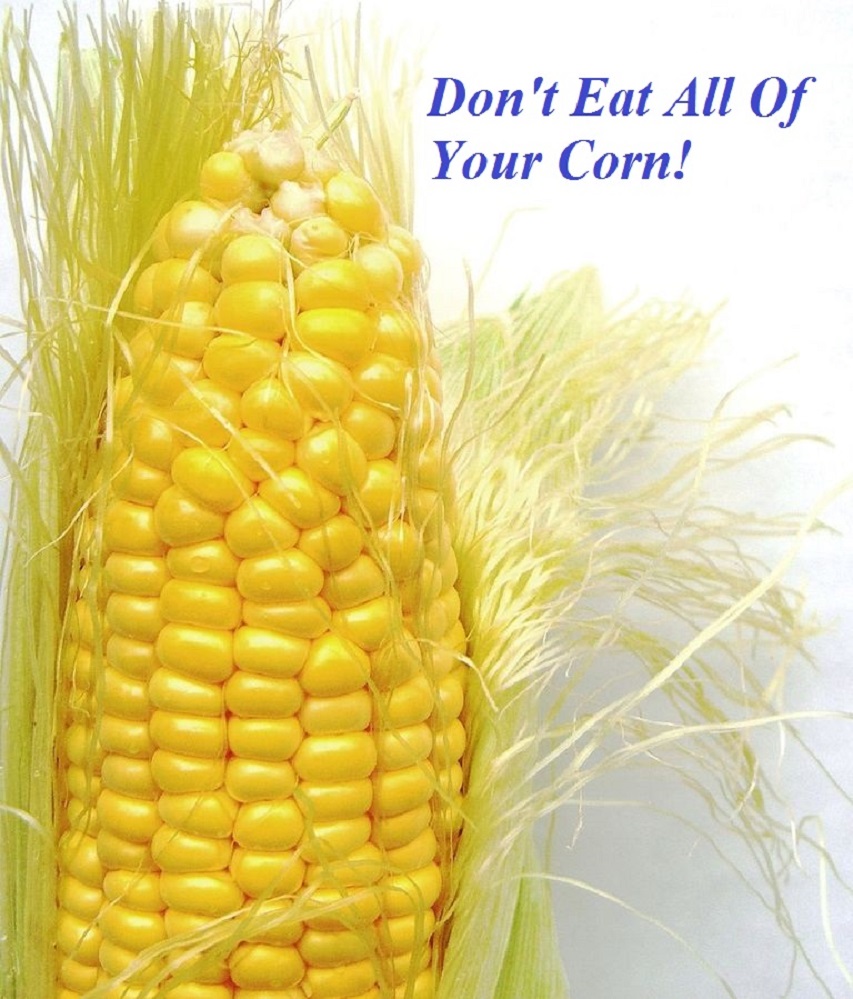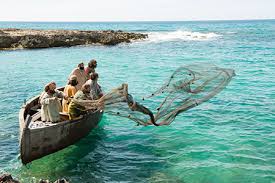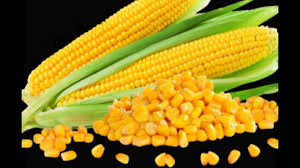Don’t Eat All Of Your Corn
 When you look at a corn cob you will notice that it is made up of many individual seeds. Now, for the purpose of illustration we are going to estimate at there being around 500 on each cob.
When you look at a corn cob you will notice that it is made up of many individual seeds. Now, for the purpose of illustration we are going to estimate at there being around 500 on each cob.
That cob would have been taken from a cornstalk, and was probably one of, say 6 on that stalk, each cob having around the same 500 individual corn seeds. That’s a total of 3,000 seeds. And remember this, that cornstalk itself grew from a single seed. That’s an amazing increase!
Now, if you took just two of the 3,000 seeds, planted, watered and cared for them, at the next harvest you would have 6,000 more seeds. (2 seeds producing 12 cobs x 500 seeds = 6000 seeds.) Simple mathematics.
Now, what if you sowed just 10% of that harvest? Mathematically you would have 60 seeds, each producing 6 cobs, each with 500 seeds. That’s 180,000 seeds!
If you now took 10% of this harvest and sowed it…… And so on……
This is God’s Law of sowing and reaping, and it has specific rules, and, based on these rules are the results that are gained:-
First of all, the seed must be Hello Princess what you doing So you’re gonna rest rict ion of good quality, or it will not germinate or produce properly.
Secondly, the ground must be good, or the seed will either die, or the fruit of it will not grow to full potential.
Third, the seed has to be fed and watered.
Each of these rules is obvious to anyone who has ever sown seeds. But it is also exceedingly important that we understand the harvest that we reap, and the increase that we receive, is going to result in us having more of the same fruit that we planted. If you plant corn, you will harvest corn. If you plant peas, you will harvest peas. So, under the same rules, if you plant doubt, your harvest will be increased doubt. If you plant sin, your harvest will result accordingly. This lesson is simply “be careful what you sow, and where you sow it” because as you continue to do so, there is increase. Good or bad – it’s your seed!
We often forget, or are sometimes oblivious to some of the seeds we sow, or have sown in the past. Many times the harvest that we receive comes as a surprise to us because we did not take more careful note of the kind of seed we had sown. Another word for a resulting harvest could be “consequences”. Instead of reaping the harvest of joy and peace that our heavenly Father intends for us, just by the simple act of not guarding our mouths and the words that we express, we harvest so much less than that which He has for us. Consequences can be the result of sowing either bad or good seed. It’s truly our choice.
As we already stated, another consequence comes by sowing into bad ground. Even if your seed is perfect, if the ground is not, the harvest will be reflected in this.
The amazing Parable of the Sower (Matthew chapter 13) has many messages within it. The simplest of these is the explanation that the Lord Himself gave to His disciples; the quality of the ground will dictate the quality and quantity of the harvest that is reaped. He was also telling them to work on “their” ground, the ground of themselves. Feeding it, nurturing it. Getting rid of the rocks and weeds of a carnal life….
Again, the quality of the seed that you have set aside, and where you sow it is obviously very important, and should be important to you. For instance, many Christians feel a desire to go on mission trips, whether to a foreign land or to another part of their own country, but, so often, many of these well intending people, upon returning home, fail to really analyze what they have achieved during their time away. We so often see pictures and videos of starving children; and there are very few Christians who are not affected by such terrible poverty and lack. Our hearts crying out for these children and their parents, wanting to do “something” for them. Physically feeding these people, or sending money to buy food, etc., doing this for them is an act of sowing seed. But what is so often forgotten is the fact that if these people are not taught the very principles of sowing and reaping, they will always be victims. This includes improving the “ground” of themselves by having the Gospel preached to them and allowing it to do it’s work within them. Feeding it, nurturing it. Getting rid of the rocks and weeds of a carnal life….
There is another very simple teaching that most of us have heard yet it is one that we seldom truly share with others; and that is the teaching of The Fish and the Net.…
It is simply a lesson that has two parts to it. First, we focus upon that person who is in need, providing for that need. Next we teach them, (which is the second part of the lesson,) how to provide for themselves.
Try looking at it this way…
 Give a man a fish, and you’ll feed him for a day. Give a man a net, and teach him how to use it, and he will not only be able to feed himself and his family, but will have leftovers and even more which he can share with others. He will then be able to teach those others how to fish and provide for themselves.
Give a man a fish, and you’ll feed him for a day. Give a man a net, and teach him how to use it, and he will not only be able to feed himself and his family, but will have leftovers and even more which he can share with others. He will then be able to teach those others how to fish and provide for themselves.
As Christians, we know the goodness of the Word. We know that it not only contains the answers to all that we will ever need to know but, that the Word, as Jesus Himself told us, is the seed that He has provided – but we are the ones who are to sow it on His behalf. You and I are commissioned to “go into all the world and preach the Gospel”. So,we should never return from any humanitarian mission trip without having sown the good seed that the Lord has given us. His Word. But, just as importantly, is the teaching of how to apply it. This is the giving of the net, and how to use it. If this is not done, then the net will be redundant, ineffective and wasted. God doesn’t waste anything and He expects us to live and work to the same standard.
We have seen good Christian people going to poverty-stricken places and doing a wonderful job of feeding the poor, but if you closely observe some of these situations you will see that upon their return to that same place the people have not progressed, have not grown, or applied the principles of sowing and reaping. On observing some mission trips to India, we have seen quite obvious proof of this. We have seen crowds of people attending food and medical outposts, being fed and treated for ailments and mal-nourishment. Many of these wear the Bindi, a vermilion-coloured mark in the parting of the hair just above the forehead. It is worn by married women as commitment to long-life and well-being of their husbands. During all Hindu marriage ceremonies, the groom applies Bindi in the part in the bride’s hair. It is a part of a ceremony, a part of a culture – a Hindu culture!
We have seen this so many times that when the mission trip returns to that place, or even when a church has been founded there, you can still see the red Bindi on many of the people’s foreheads. It means that they have not renounced their Hindu religion, which means that they have either not had the Gospel preached to them, or have not had it done effectively. They still want the fish, but they have not learned how to catch their own, or have decided to rely on someone else providing for them. Their net has become redundant. How effective was/is that mission trip?
We should never give up on any of God’s precious creations, but if you can get them to understand that this is the principle, God’s law of sowing and reaping, they will understand that their lives cannot fail to improve; and that, as theirs improves, so does that of everyone with whom they come into contact with, or with whom they are associated. They will then go into all the world and preach the gospel – once they know the principles and have received the benefits. It’s called belief, it’s called Testimony!
Have you ever gone into someone’s house and seen a Bible sitting on a table? Next time you do, check and see if there’s any dust on it. That would be another perfect example of a seed not being planted. This is not to make you judge somebody, but to take an observation such as this and teach explain the law of sowing and reaping. Helping them to understand that they, too, are called to go into all the world and teaching them the principal of the fish and the net. The Lord told us in Hosea 4:6 … My people are destroyed for lack of knowledge: Situations like this are opportunities for you to teach others about the Word itself and what it can do. This is you teaching them how to properly and effectively sow seed and how they can learn to use the net so as to teach others Simple.
Again using the example of the corn; if we provide this for someone, we should teach them not to eat it all. Why they should take some of it and sow it for themselves. As they do, they will begin to understand the lesson contained within the parable of the Sower about the importance of the quality of the ground into which they are sowing. As they come to understand this they will learn that the harvest they will receive from the seed sown into themselves becomes greater and more fulfilling as they begin to grow and enter deeper and deeper into God’s will for their lives. The better the development of the ground, the better their lives, and the better the harvest will become. The more that they know, understand, and share, the closer they come to achieving and receiving all that was ever intended for us as God’s children and in their learning, and as they are proclaiming the Gospel, the more the kingdom of God will expand. Good will prevail because the harvest is better, because the ground more is more fertile to receive the perfect seed of God, the Word itself!
And this is what the Lord meant when He told us to: Go ye therefore, and teach all nations, baptizing them in the name of the Father, and of the Son, and of the Holy Ghost: Teaching them to observe all things whatsoever I have commanded you: and, lo, I am with you alway, even unto the end of the world. Amen. (Matthew 28:19-20)
This Commandment is often referred to as the Great Commission and is one of the fundamental callings of Discipleship, and one of the operations which Eagles Wings Ministry is called to perform.
Our Systematic Discipleship Program is being developed in order that anyone can come to understand the great gift that Jesus gave us when He died for us. The Program is open to any and all people. It is designed to take each individual from simply understanding the need for Salvation, leading them into it, and all the way through to the highest calling that is upon their life. Hence, one of our primary Scriptures and goals is:
But they that wait upon the LORD shall renew their strength; they shall mount up with wings as eagles; they shall run, and not be weary; and they shall walk, and not faint. (Isaiah 40:31)
In other words, they shall be well-equipped for their daily lives, but by the knowledge that is freely available, and coming to know what the Lord also meant within the words of His Great Commission when He spoke it. Going into all the world and preaching the Gospel is calling to every Christian. Some will be called into ministry, but each is called to minister. By the very way that a Christian lives their life should be the preaching the Gospel. By the very way that we can be seen to be prosperous, healthy, and wise is part a what is known as witnessing. Witnessing is not just “talking the talk, it is also walking the walk.” So, don’t eat all of your corn, take some of it and sow into others, in every way that you can!

At Eagles Wings Ministry, it is our desire to show each and every person the great value that God places upon each of us. His perfect grace and unquestionable faithfulness, and the amazing love that He has for us through our Systematic Discipleship Program. To help you become an eagle yourself, rising high above the storms of life. To help those who choose, to step out into their calling, and to achieve all that they are ordained to be.
If you are interested in learning more about our Systematic Discipleship Program, please click here